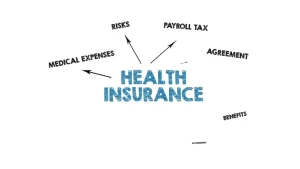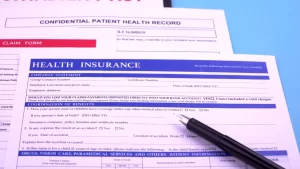
Traveling can be an exciting adventure, but it also comes with its share of uncertainties. From flight cancellations to medical emergencies, unexpected events can disrupt your plans and lead to significant financial losses. This is where travel insurance comes into play. But is it worth the cost? Let’s explore the various aspects of travel insurance to help you make an informed decision.
What is Travel Insurance?
Travel insurance is a type of insurance designed to cover various risks associated with traveling. It typically includes coverage for trip cancellations, medical emergencies, lost or delayed baggage, and other travel-related issues. Policies can vary widely, so it’s essential to understand what is covered and what is not.
What Does Travel Insurance Cover?
Travel insurance typically covers a range of travel-related risks, including:
- Trip Cancellation: Reimbursement for non-refundable trip costs if you have to cancel for a covered reason, such as illness or severe weather.
- Trip Interruption: Coverage for the unused portion of your trip if it gets cut short due to a covered reason.
- Medical Emergencies: Payment for medical expenses incurred during your trip, which can be crucial if your health insurance doesn’t cover you abroad.
- Emergency Evacuation: Costs associated with emergency medical transportation to the nearest adequate medical facility.
- Baggage Loss/Delay: Compensation for lost, stolen, or delayed baggage.
- Travel Delays: Reimbursement for additional expenses incurred due to significant travel delays.
When is Travel Insurance Worth It?
Travel insurance can be a valuable investment in several scenarios:
- Expensive, Non-Refundable Trips: If you’ve invested a significant amount in a non-refundable trip, travel insurance can protect you from losing that money if something goes wrong.
- International Travel: Health insurance plans often have limited or no coverage outside your home country. Travel insurance can fill this gap.
- Remote Destinations: Traveling to areas with limited healthcare facilities makes emergency medical and evacuation coverage essential.
- Trips with Multiple Destinations: The more complex your travel itinerary, the higher the risk of disruptions, making travel insurance a wise choice.
- Hurricane-Prone Areas: If you’re traveling during hurricane season, travel insurance can provide peace of mind.
When Might Travel Insurance Be Unnecessary?
In some cases, travel insurance might not be necessary:
- Refundable Trips: If your trip is fully refundable, you may not need additional coverage.
- Existing Coverage: Some credit cards offer travel insurance benefits, so check if you’re already covered.
- Short, Domestic Trips: For short trips within your home country, the risks might be lower, and your existing health insurance may suffice.
How Much Does Travel Insurance Cost?
The cost of travel insurance typically ranges from 4% to 8% of your total trip cost. For example, for a $5,000 trip, you might pay between $200 and $400 for coverage. Factors influencing the cost include the length of the trip, destination, age of travelers, and the level of coverage chosen. While it adds to your travel budget, the protection it offers can outweigh the expense, especially for costly trips.
Pros and Cons of Travel Insurance
Pros:
- Financial Protection: Covers non-refundable expenses and unexpected costs.
- Medical Coverage: Provides essential medical care and evacuation services.
- Peace of Mind: Reduces stress by offering a safety net for various travel risks.
Cons:
- Additional Cost: Adds to the overall travel expenses.
- Exclusions and Limitations: Not all situations are covered, and policies can have exclusions.
- Complexity: Understanding the terms and conditions of policies can be challenging.
Alternatives to Travel Insurance
Some alternatives to purchasing a separate travel insurance policy include:
- Credit Card Benefits: Many credit cards offer travel insurance as a perk. Check your card’s benefits to see if it provides adequate coverage.
- Existing Insurance Policies: Some health and homeowners insurance policies may offer limited travel coverage. Review your existing policies to understand what is included.
Conclusion: Is Travel Insurance Worth It?
Ultimately, the decision to purchase travel insurance depends on your individual circumstances and risk tolerance. If you can’t afford to lose the money you’ve invested in your trip or if you’re traveling to a destination with potential health risks, travel insurance can be a smart investment. On the other hand, if your trip is refundable or you’re already covered by other means, you might decide to skip it.
Travel insurance provides a safety net that can offer peace of mind and financial protection, allowing you to enjoy your travels with less worry. Consider your specific needs and the details of your trip to determine if travel insurance is worth the cost for you.
If you have any specific questions about travel insurance or need help finding the right policy, feel free to ask!
What are some common exclusions in travel insurance?
Common Exclusions in Travel Insurance
Travel insurance policies often have exclusions that you should be aware of before purchasing. Some common exclusions include:
- Pre-existing Medical Conditions: Many policies do not cover medical issues that existed before the trip unless you purchase a waiver.
- High-Risk Activities: Activities like extreme sports, scuba diving, or mountaineering are often excluded.
- Civil Unrest: Travel to destinations with known civil unrest or travel advisories may not be covered.
- Pregnancy-Related Expenses: Costs related to pregnancy beyond a certain stage are typically excluded.
- Non-Refundable Costs: If you cancel your trip for reasons not covered by the policy, such as a change of mind, you won’t be reimbursed.
- Natural Disasters Known Before Purchase: If a natural disaster is already known or named before you buy the insurance, related claims are usually not covered.
Reputable Travel Insurance Providers
Here are some reputable travel insurance providers known for their comprehensive coverage and customer service:
- PrimeCover: Best for evacuation coverage.
- Travel Insured International: Great for non-medical evacuation.
- WorldTrips: Excellent for add-on coverage.
- Allianz Global Assistance: Best for emergency medical coverage.
- Travel Guard by AIG: Ideal for travelers with pre-existing medical conditions.
- Travelex Insurance Services: Best for families.
How do you file a claim if something goes wrong during your trip?
How to File a Travel Insurance Claim
If something goes wrong during your trip and you need to file a claim, follow these steps:
- Review Your Policy: Understand what is covered and what is not. Check for any required waiting periods for delays or other conditions.
- Gather Documentation: Collect all necessary documents such as receipts, medical reports, police reports, and travel itineraries. Documentation is crucial for a smooth claims process.
- Submit Your Claim: Most insurance companies allow you to file a claim online, through their app, or by phone. Provide a concise summary of the events and upload all supporting documents.
- Follow Up: Keep track of your claim status and respond promptly to any requests for additional information.
If you have any more questions or need further assistance, feel free to ask! Safe travels! 🌍✈️
Coverage Limits for Emergency Medical Expenses
The coverage limits for emergency medical expenses in travel insurance can vary widely depending on the policy and provider. Here are some general guidelines:
- Basic Plans: Typically offer coverage ranging from $10,000 to $50,000.
- Mid-Tier Plans: Often provide coverage between $50,000 and $100,000.
- Comprehensive Plans: Can offer coverage from $100,000 to $500,000 or more.
It’s essential to review the specific terms of your policy to understand the exact limits and any sub-limits that may apply to different types of medical expenses.
How to Choose the Right Travel Insurance Plan
Choosing the right travel insurance plan involves considering several factors:
- Trip Cost and Non-Refundable Expenses: Ensure the plan covers the total cost of your trip and any non-refundable expenses.
- Destination: Consider the healthcare quality and costs in your destination. Higher coverage may be needed for countries with expensive medical care.
- Activities: If you plan to engage in high-risk activities, look for a plan that includes coverage for those activities.
- Existing Coverage: Check if your health insurance or credit card offers any travel benefits that might reduce the need for additional coverage.
- Policy Exclusions: Review the exclusions to ensure the plan covers your specific needs.
- Customer Reviews and Reputation: Research the provider’s reputation and read customer reviews to gauge their reliability and claims process.
Trip Cancellation vs. Trip Interruption
Trip Cancellation and Trip Interruption are two distinct coverages in travel insurance:
- Trip Cancellation: This coverage reimburses you for pre-paid, non-refundable expenses if you have to cancel your trip before departure due to a covered reason, such as illness, severe weather, or a family emergency. It helps you recover the money you’ve invested in your trip.
- Trip Interruption: This coverage kicks in if you need to cut your trip short and return home due to a covered reason. It reimburses you for the unused portion of your trip and any additional expenses incurred to return home early. This can include costs for new flights, accommodations, and other necessary arrangements.
Both coverages provide financial protection, but they apply at different stages of your trip. Trip Cancellation is for before you leave, while Trip Interruption is for when you’re already traveling.
If you have any more questions or need further assistance, feel free to ask! Safe travels! 🌍✈️






























fm38jz
I will right away snatch your rss feed as I can not to find your email subscription link or e-newsletter service. Do you have any? Please allow me recognise in order that I may subscribe. Thanks.
wp5f95
Great V I should definitely pronounce, impressed with your website. I had no trouble navigating through all the tabs and related info ended up being truly simple to do to access. I recently found what I hoped for before you know it in the least. Quite unusual. Is likely to appreciate it for those who add forums or something, site theme . a tones way for your client to communicate. Nice task..
F*ckin’ remarkable things here. I’m very glad to see your article. Thanks a lot and i’m taking a look forward to contact you. Will you kindly drop me a e-mail?
Hello! I could have sworn I’ve been to this blog before but after browsing through some of the post I realized it’s new to me. Anyways, I’m definitely happy I found it and I’ll be book-marking and checking back frequently!
Гама Казино Скачать на Андроид. https://github.com/sewer80/gamma
I am often to blogging and i really appreciate your content. The article has really peaks my interest. I am going to bookmark your site and keep checking for new information.
I simply could not depart your site before suggesting that I extremely enjoyed the usual info a person provide in your visitors? Is gonna be again often to inspect new posts.
You have brought up a very fantastic details, appreciate it for the post.
Some times its a pain in the ass to read what people wrote but this website is rattling user pleasant! .
I enjoyed this post from start to finish—excellent job!